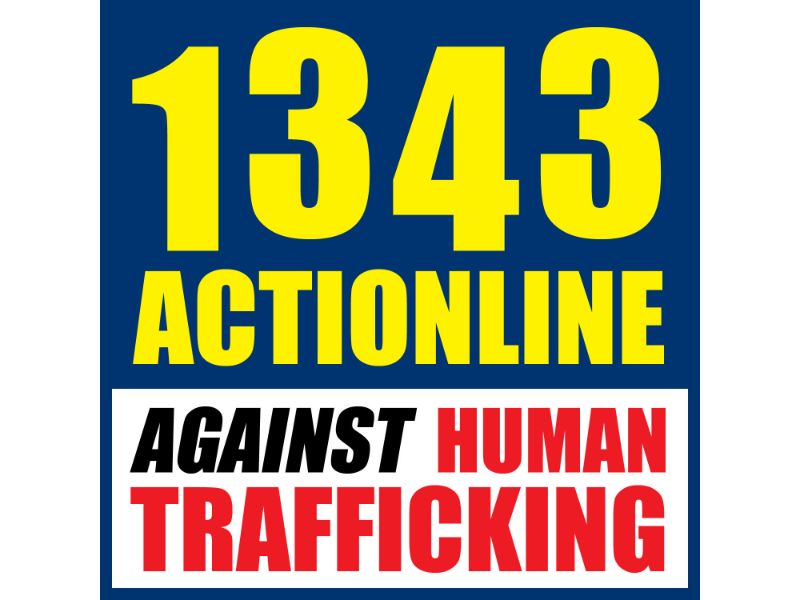Justice Secretary Leila de Lima today said the visit of Ambassador Luis CdeBaca, in-charge of the United States Department of State's (USDS) Office to Monitor and Combat Trafficking in Persons, "affirms the recognition of the US government of the country's gains in the campaign against human trafficking".
Cdebaca met with top ranking cabinet officials at the Department of Justice (DOJ) yesterday (July 16, 2012) , just a few weeks after the US State Department announced the retention of the country in the Tier 2 category in its Global Human Trafficking in Persons (GTIP) report.
In the meeting attended by DOJ Secretary Leila de Lima, Department of Social Welfare and Development (DSWD) Secretary Dinky Soliman and key officials of other member-agencies of the Inter-agency Council Against Trafficking (IACAT), Ambassador CdeBaca affirmed the gains achieved by the Philippines in the campaign against what has been named as 'modern-day slavery' .
Other key officials who attended the event include Department of Interior and Local Government (DILG) Secretary Jesse Robredo, DOJ Undersecretary Jose Vicente B. Salazar, Bureau of Immigration (BI) Commissioner Ricardo David, Jr., National Bureau of Investigation (NBI) Director Nonatus Ceasar Rojas, Philippine Center on Transnational Crime (PCTC) Executive Director Felizardo Serapio, Jr., Philippine Overseas Employment Administration (POEA) Administrator Hans Leo Cacdac, Department of Labor and Employment (DOLE) Assistant Secretary Joji Aragon, Commission on Human Rights (CHR) Chairperson Loretta Ann Rosales, National Youth Commission (NYC) Commissioner Georgina Nava, Philippine Commission for Women (PCW) Chairperson Remedios Ignacio-Rikken and Council for the Welfare of Children (CWC) Executive Director Brenda Virgo.
CdeBaca is a decorated federal prosecutor before he was appointed by US President Barack Obama to manage the activities of the US government in its international fight against modern forms of slavery. He also assisted US Secretary of State Hillary Clinton put together the GTIP report released last July, 2012.
Secretary Leila M. De Lima, Chair of the Inter-Agency Council Against Trafficking (IACAT), expressed her deep appreciation to the importance given to the country's Philippine anti-human trafficking campaign, as well as, the initiatives of coordinating with the Philippine government by the US Ambassador. She also assured Cdebaca that "The Philippine government through the Department of Justice has put the full force of the law in prosecuting human traffickers even beyond our borders."
De Lima further mentioned in a statement that the government reiterated the Philippine government's firm resolve to further expand the gains held by the Philippines specifically underscored by the recent allocation of Php125M from the national budget for the operations of the Inter-Agency Task Force Against Trafficking and the intensified campaign against government employees conniving with or aiding the operations of human trafficking syndicates.
DSWD Secretary Soliman, Co-Chair of IACAT, expressed the government's commitment to the welfare of citizens especially those who are vulnerable to being trafficked due to poverty and lack of education. "We will ensure that the necessary programs are in place so the rescued victims are given due socio-psychological processing to cope with the ordeals they've experienced in the hands of trafficking criminals," she added.
DILG Secretary Robredo, sitting as one of the ex-officio members of IACAT, expressed optimism in the efforts of the government. "In order for us to move ahead it's not simply coming up with new programs but its really making sure that the present programs are working, so from that we are moving forward to a more preventive and as I have said a more pre-emptive response."
The ultimate challenge now is to contend with the continuing sophistication of "violators and also how we can contend with the problems of willing victims," Robredo further stated. "...advocacy and enforcement will help us," he added.
Undersecretary Jose Vicente B. Salazar, In-Charge of IACAT, said "the Ambassador's visit symbolizes the US State Department acknowledgment of the anti-human trafficking framework that we have in place in the Philippines." "We assured him that we at the IACAT will continue to ensure that no Filipino is victimized wherever they are in the world and that the incidence of human trafficking in the Philippines will continue to be drastically reduced", he added.
The US Ambassador lauded the National Strategic Action Plan of the IACAT presented by the Council. CdeBaca, nonetheless mentioned that "without implementation, these are mere words on paper."
"At the end of the day, the only thing that matters are the victims rescued and traffickers prosecuted and punished." He added.
"Human trafficking is a developmental problem... a problem of law," CdeBaca said in his statement. "The Philippine model shows one of the world's best practices... it is a banner of success, and my job is not to keep it a secret with the rest of the world."

